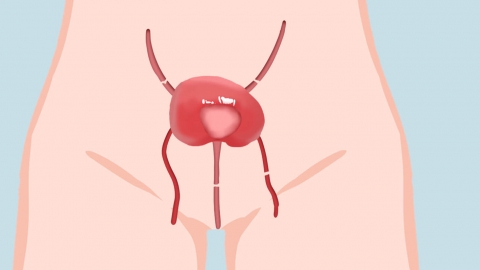What are the causes of urosepsis?
Under normal circumstances, urosepsis may be caused by factors such as decreased immune function, urinary tract obstruction, acute pyelonephritis, complicated urinary tract infections, or renal abscesses. If discomfort symptoms occur, it is recommended to seek timely medical evaluation and treatment at a reputable hospital. Detailed analysis is as follows:

1. Decreased Immune Function
Excessive fatigue, malnutrition, and similar conditions can weaken the immune system, allowing even small numbers of bacteria in the urinary tract to breach natural defenses and cause infection, which may progress to sepsis. Maintain regular作息 (daily routines), avoid overexertion, consume adequate protein and vitamin-rich foods, engage in moderate exercise to improve physical health, and avoid chronic sleep deprivation or extreme dieting.
2. Urinary Tract Obstruction
Conditions such as urinary stones or benign prostatic hyperplasia can obstruct urine flow, enabling bacteria to multiply rapidly at the site of blockage. Bacteria and their toxins may then enter the bloodstream, causing infection. Prompt relief of obstruction is essential. For smaller stones, increased fluid intake and physical activity may help promote spontaneous passage. Patients with benign prostatic hyperplasia may find relief through warm compresses applied to the lower abdomen. In severe cases, procedures such as ureteroscopic lithotripsy or transurethral resection of the prostate (TURP) may be required.
3. Acute Pyelonephritis
Pathogens such as *Escherichia coli* can infect the kidneys and trigger inflammation. If the infection spreads, bacteria may enter the bloodstream, leading to urosepsis, often accompanied by high fever and flank pain. Under medical supervision, antibiotics such as levofloxacin tablets, cefuroxime axetil tablets, or amoxicillin-clavulanate potassium tablets may be prescribed. During treatment, drink plenty of water to promote urination and avoid holding urine.
4. Complicated Urinary Tract Infection
Patients with diabetes or those with long-term indwelling urinary catheters often have weakened mucosal defenses in the urinary tract, making them prone to recurrent bacterial infections that may spread and trigger sepsis. Under medical guidance, treatments may include intravenous ceftriaxone sodium, piperacillin-tazobactam sodium, or oral moxifloxacin hydrochloride. It is important to actively control blood glucose levels, regularly replace catheters, and maintain proper local hygiene.
5. Renal Abscess
A localized kidney infection can develop into an abscess. If the abscess ruptures, large quantities of bacteria may enter the bloodstream, resulting in severe sepsis, often accompanied by intense flank pain and chills. Under medical supervision, intravenous antibiotics such as imipenem-cilastatin sodium, meropenem, or vancomycin may be administered. In some cases, percutaneous drainage of the renal abscess or partial nephrectomy may be necessary.
In daily life, it is important to drink plenty of water and urinate frequently, avoiding urine retention; maintain personal hygiene and keep the urethral opening clean; actively manage underlying conditions such as diabetes to maintain stable blood sugar; avoid unnecessary catheterization, and when catheter use is required, strictly follow sterile techniques; and undergo regular health check-ups to detect urinary tract abnormalities early.




